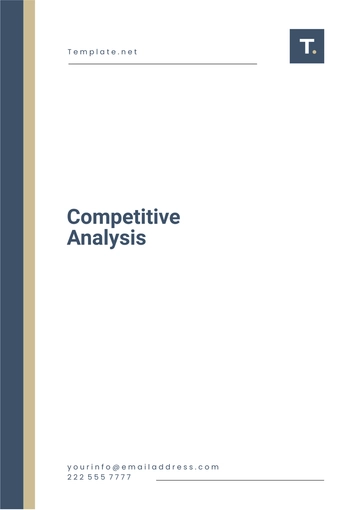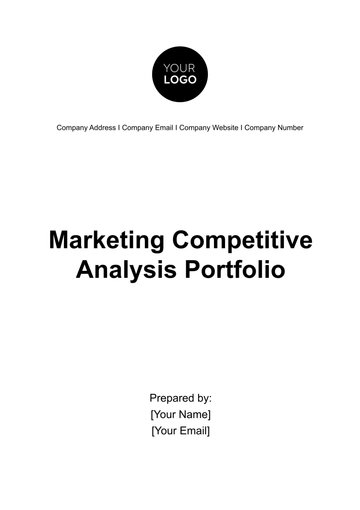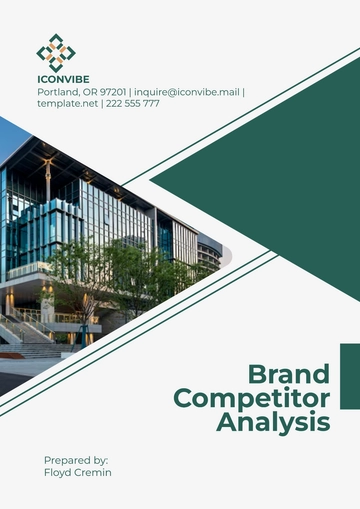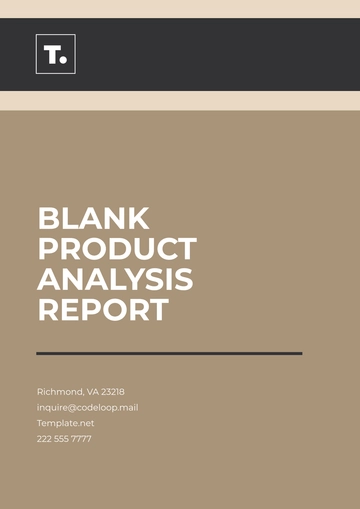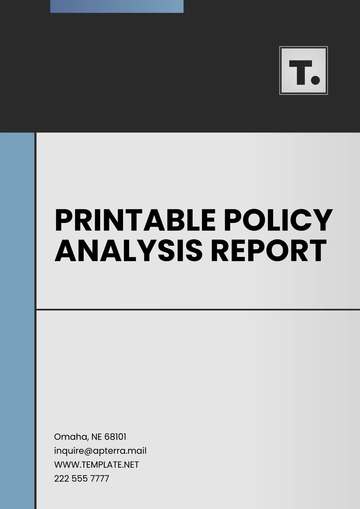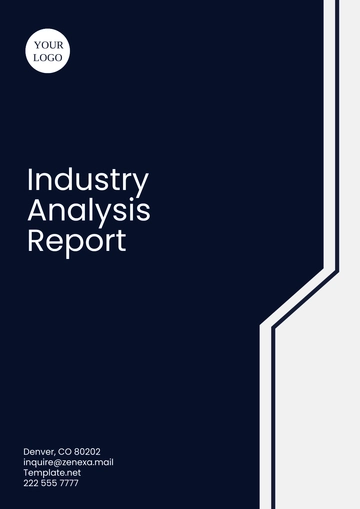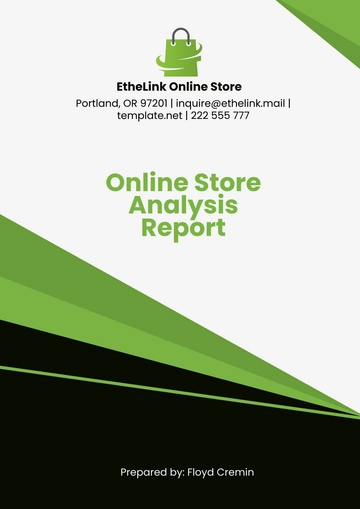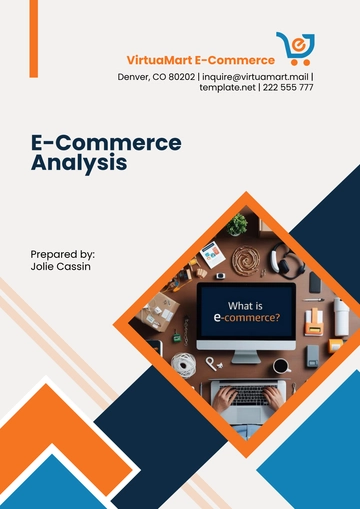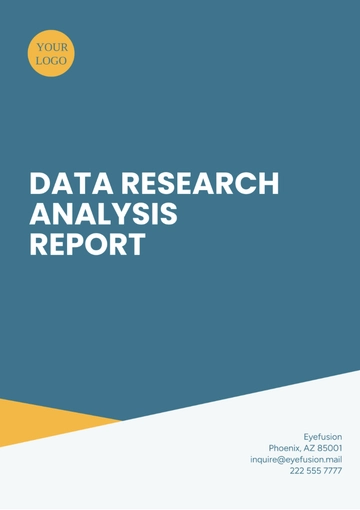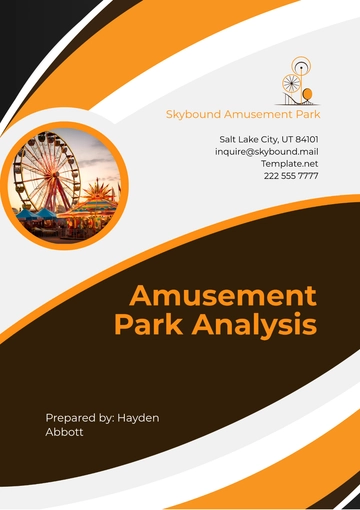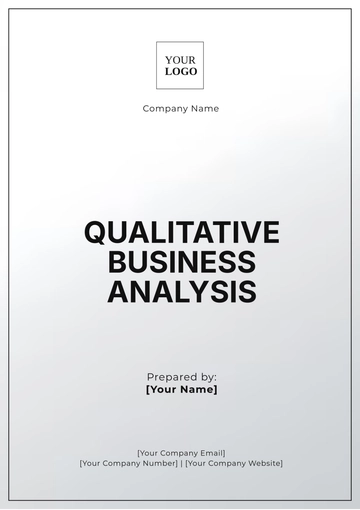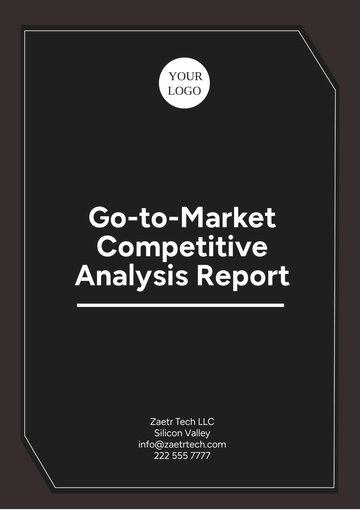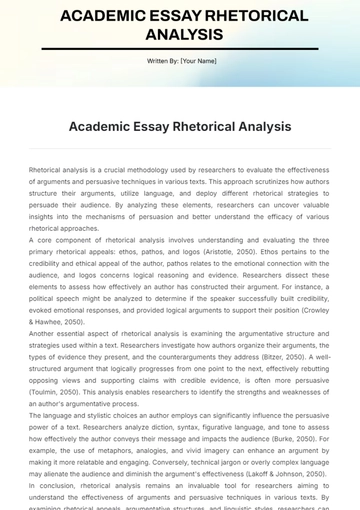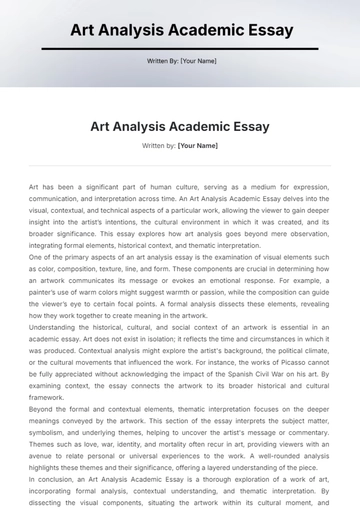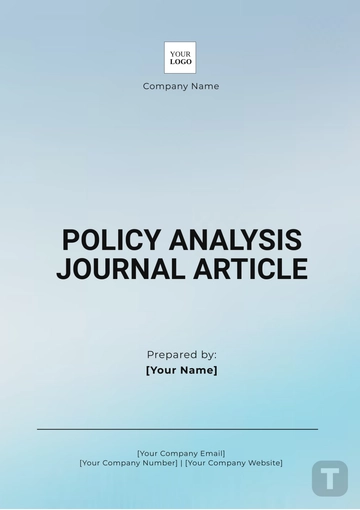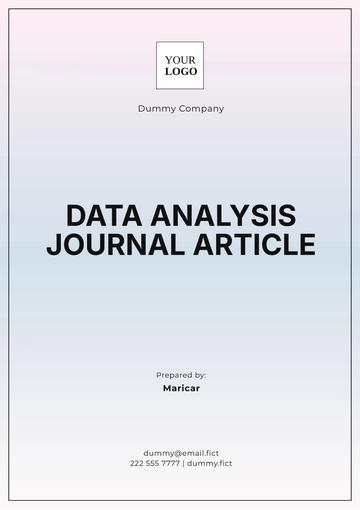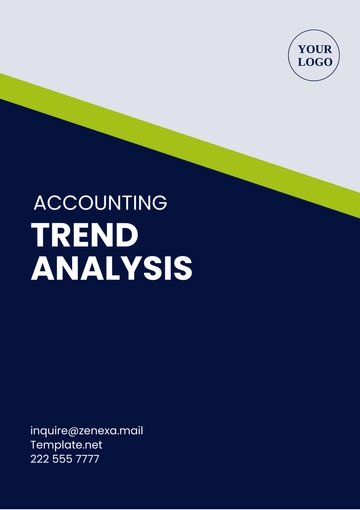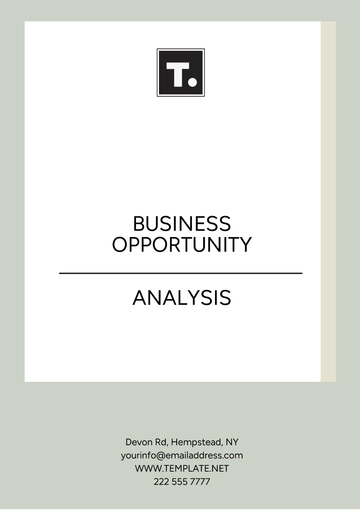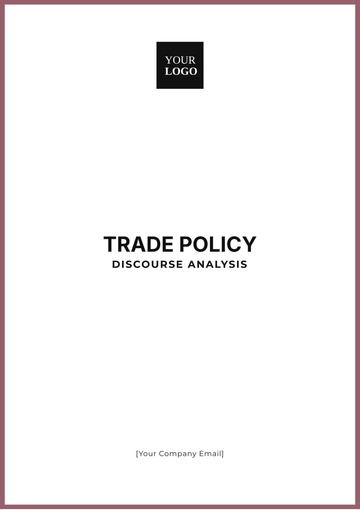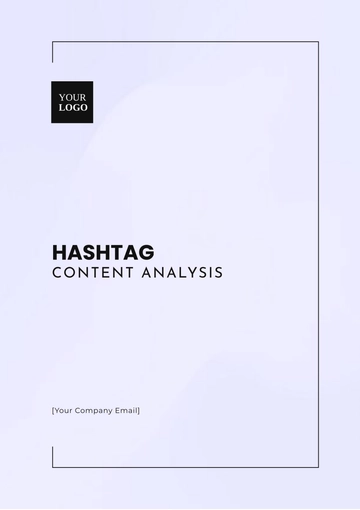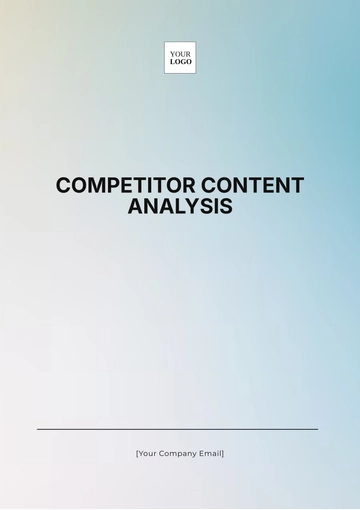Free Accounting Trend Analysis
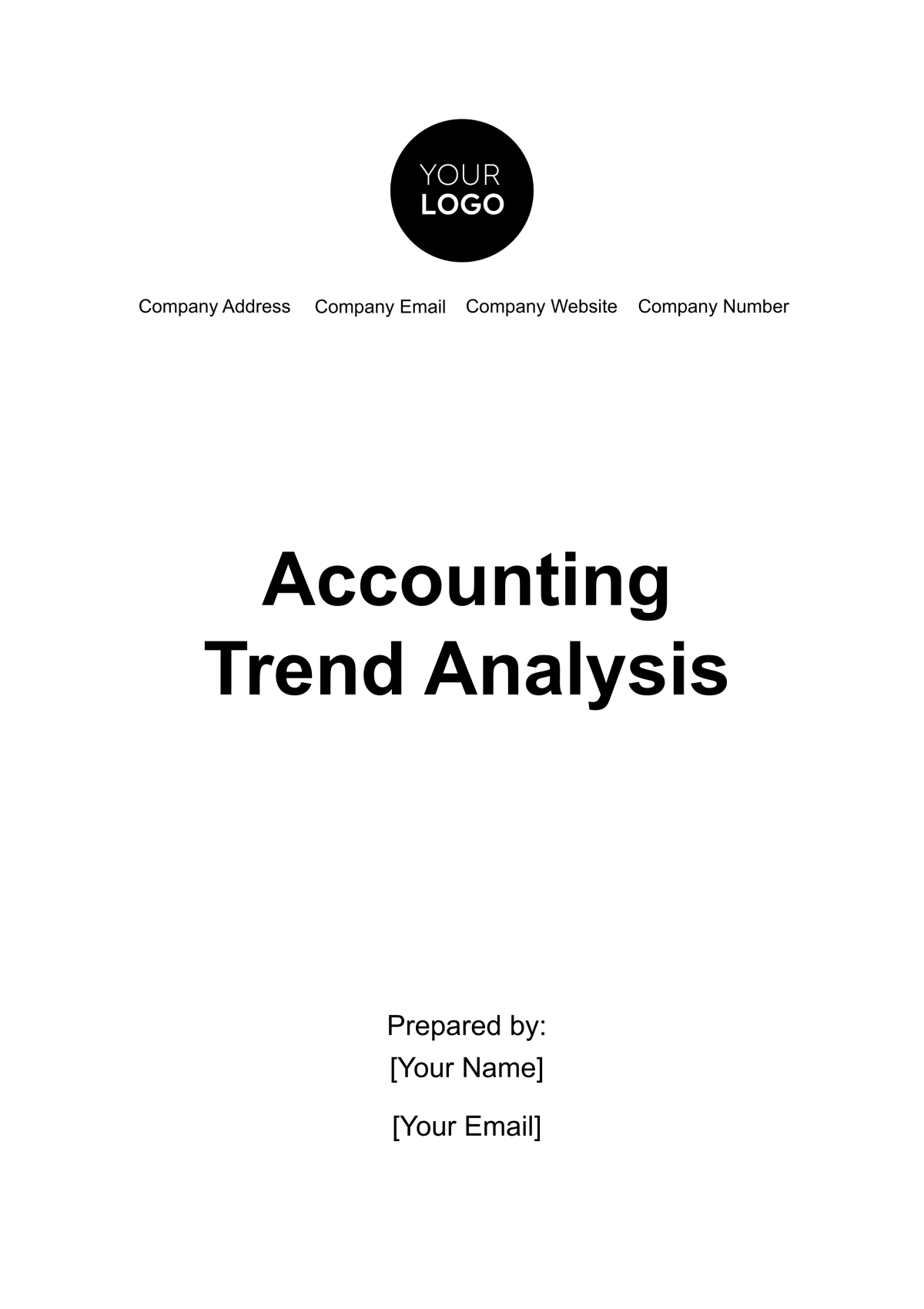
I. Overview of Accounting Trends in H1
In the first half of the year, [Your Company Name] has observed several significant shifts in the accounting landscape, driven by technological advancements and evolving regulatory requirements. One prominent trend is the increased adoption of automation and artificial intelligence (AI) in accounting processes. Automation tools and AI algorithms are revolutionizing tasks such as data entry, reconciliation, and financial analysis, enhancing both accuracy and efficiency. This technological progress not only minimizes human error but also allows accountants to concentrate on strategic decision-making. Additionally, the integration of advanced analytics is improving financial forecasting and performance tracking, offering organizations deeper insights into their financial health.
Another key trend is the adaptation to new regulatory frameworks. Recent legislative changes have introduced more complex compliance requirements, compelling organizations to invest in advanced compliance management tools. These tools help ensure adherence to updated financial reporting standards and data privacy regulations, mitigating risks and avoiding potential penalties. As [Your Company Name] navigates these changes, it highlights the necessity for accounting professionals to remain informed about regulatory updates and leverage technology to ensure compliance and enhance financial performance. The first half of the year thus reflects a period of transformation, with technology and regulation significantly influencing the future of accounting practices.
II. Key Trends Identified
As the accounting industry continues to evolve, several key trends have emerged that are shaping the future of financial management. This section delves into the primary developments observed in the first half of the year, highlighting the increased adoption of automation and AI, the heightened emphasis on cybersecurity, the transition to cloud-based solutions, and the latest regulatory changes impacting compliance.
A. Increased Adoption of Automation and AI
Automation and Artificial Intelligence (AI) have gained significant traction in the accounting industry. Firms are leveraging these technologies to streamline accounting processes, improve accuracy, and reduce manual workloads.
Technology | Adoption Rate | Benefits |
|---|---|---|
Robotic Process Automation (RPA) | 70% |
|
Artificial Intelligence (AI) | 65% |
|
B. Emphasis on Cybersecurity
With the increase in digital transactions and data storage, cybersecurity has become a top priority for accounting firms. Protecting client information and financial data from cyber threats is crucial for maintaining trust and compliance with regulations.
Key strategies include:
Implementing advanced encryption techniques
Regular cybersecurity audits
Employee training programs on data security
C. Transition to Cloud-Based Accounting
Cloud accounting software is becoming the norm due to its numerous advantages such as real-time access to financial data, cost-effectiveness, and scalability.
Cloud Accounting Solution | Market Share | Features |
|---|---|---|
QuickBooks Online | 50% |
|
Xero | 30% |
|
D. Regulatory Changes and Compliance
The accounting industry is continuously evolving to comply with new regulations and standards. In H1, two significant regulatory updates have affected accounting practices:
ASC 842 Lease Accounting: Requires organizations to recognize lease assets and liabilities on the balance sheet, affecting lessees' financial statements.
CSR Reporting: Increased focus on Corporate Social Responsibility (CSR) reporting, requiring firms to disclose their social and environmental impact.
III. Impact of Emerging Trends
The emerging trends in accounting technologies and practices are profoundly affecting various aspects of the industry. This section explores how the adoption of automation, AI, cybersecurity advancements, and cloud-based solutions is influencing financial performance and client satisfaction. By examining the tangible benefits these trends bring, we can better understand their impact on operational efficiency, cost reduction, and enhanced client experiences.
A. Financial Performance
The adoption of new accounting technologies has had a significant impact on financial performance. Automation and AI have led to cost savings and improved efficiency, which translate into higher profitability for firms.
Metric | Pre-Adoption | Post-Adoption |
|---|---|---|
Operational Costs | $1,000,000 | $800,000 |
Process Time | 100 hours | 60 hours |
Accuracy Rate | 90% | 98% |
B. Client Satisfaction
Enhanced cybersecurity and cloud-based solutions have positively influenced client satisfaction. Clients appreciate the increased security measures and the ability to access their financial data from anywhere at any time.
Security: Clients feel more secure with advanced protection measures.
Accessibility: Real-time access to financial information improves client engagement and decision-making.
IV. Case Studies
To illustrate the real-world impact of emerging accounting trends, this section presents case studies of organizations that have successfully implemented advanced technologies. By examining a mid-sized firm's adoption of Robotic Process Automation (RPA) and a large enterprise's transition to cloud-based accounting software, we highlight both the challenges faced and the positive outcomes achieved. These case studies provide valuable insights into how adopting innovative solutions can drive operational efficiency and enhance financial management.
A. Successful Implementation of RPA
A mid-sized accounting firm adopted Robotic Process Automation (RPA) to handle repetitive tasks such as data entry and invoice processing. This move resulted in a 30% reduction in processing time and a 20% increase in accuracy.
Challenges | Outcome |
|---|---|
|
|
B. Cloud Accounting Software Transformation
A large enterprise transitioned from traditional accounting software to a cloud-based solution, QuickBooks Online. This transition facilitated better financial management and reporting, and allowed for seamless integration with other business applications.
Challenges | Outcome |
|---|---|
|
|
V. Conclusion
The first half of the year has highlighted pivotal trends shaping the accounting industry, underscored by rapid technological advancements and evolving regulatory requirements. Automation and Artificial Intelligence (AI) have revolutionized traditional accounting processes, leading to significant improvements in efficiency and accuracy. By reducing manual workloads and enhancing data analysis, these technologies are driving cost savings and higher profitability. Similarly, the increased focus on cybersecurity and the transition to cloud-based accounting solutions have fortified data protection and provided clients with real-time access to their financial information, which has bolstered trust and engagement.
As regulatory landscapes continue to shift, adherence to new standards such as ASC 842 and CSR reporting has become crucial for maintaining compliance and mitigating risks. Firms that proactively embrace these trends and adapt their practices are well-positioned to reap the benefits of enhanced operational efficiency, improved client satisfaction, and superior financial performance. The continued evolution of accounting practices promises not only to address current challenges but also to unlock new opportunities for growth and innovation. Organizations that strategically align with these trends will be better equipped to navigate the future of accounting and secure a competitive edge in the marketplace.
- 100% Customizable, free editor
- Access 1 Million+ Templates, photo’s & graphics
- Download or share as a template
- Click and replace photos, graphics, text, backgrounds
- Resize, crop, AI write & more
- Access advanced editor
Analyze financial data effortlessly with our Accounting Trend Analysis Template from Template.net. This editable and customizable template allows you to track and visualize trends over time. Easily editable in our Ai Editor Tool, you can customize it to meet your specific accounting analysis needs.
